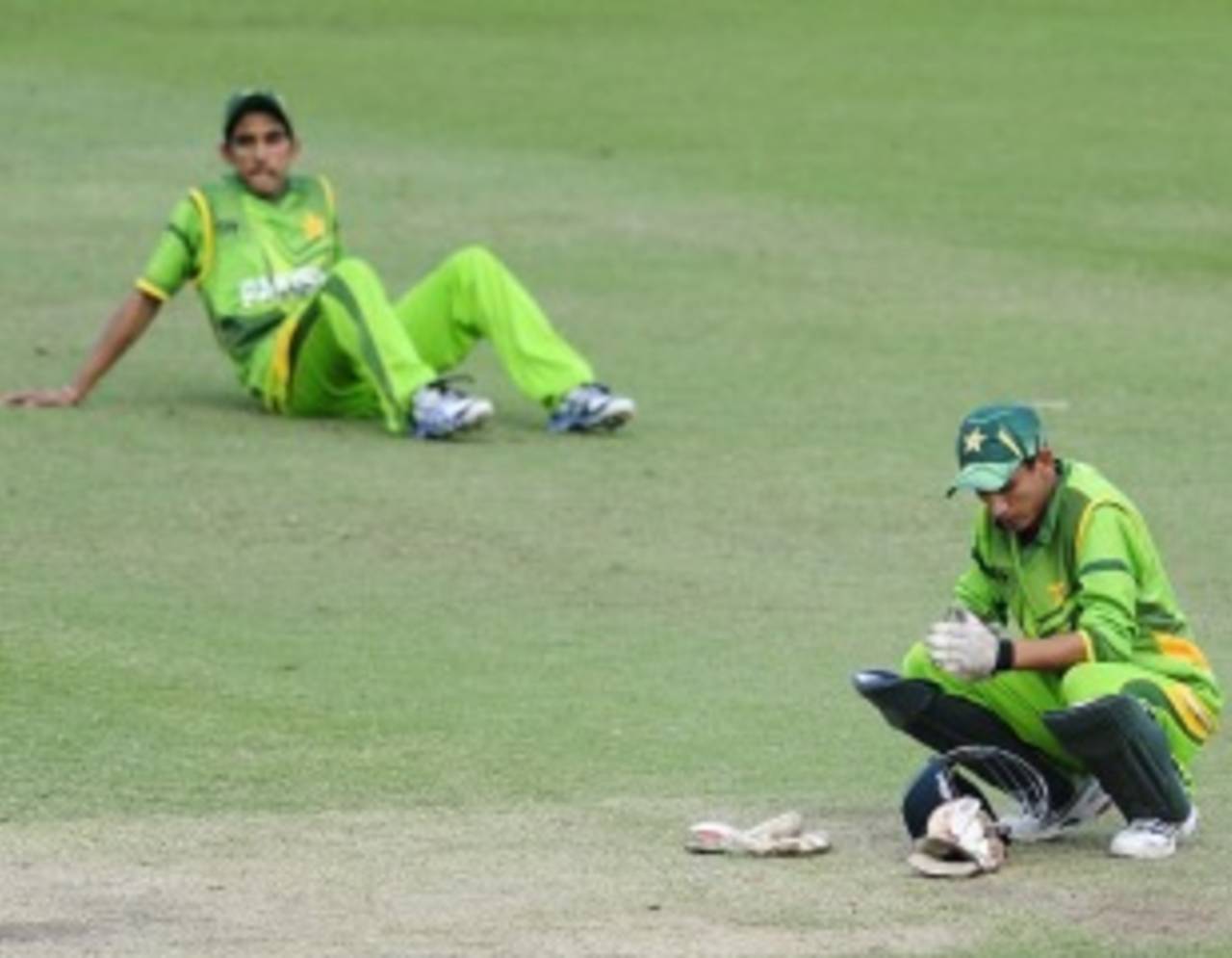On the list of human desires, the ability to see the future ranks right up there with renewable energy and the fountain of youth. This is easily enough to get one excited about international Under-19 cricket, which offers a reliable glimpse of things to come in the game. In Pakistan especially, where promising teenagers are often fast-tracked into the Test side, U-19 cricket has a healthy reputation for unearthing future gems.
Fans of a certain vintage will recall an Australian U-19 side that
visited Pakistan in 1981 for a three-match series, which was dominated by the batting of Saleem Malik and Ramiz Raja. No one had heard of these two lads before, but their stroke-making suggested they ought soon to be able to hold their own against the best international sides of the day, and of course they lived up to that promise. In later years Inzamam-ul-Haq, Mushtaq Ahmed, Abdul Razzaq, Shoaib Malik, Umar Gul, and Azhar Ali first came to light through U-19 cricket.
A major source of pleasure and thrills has been the U-19 World Cup, in which Pakistan has frequently excelled, reaching the final on four occasions and winning the title twice - a better record than the national side has managed in the adult equivalent. Combined with live television coverage, this has elevated the U-19 tournament to the status of an important competition that attracts wide local attention.
To be sure, the buzz for the tournament's 2012 edition was slow to build. On television, it was overshadowed by the London Olympics, and the league stage happened to coincide with Ramadan, the holy month of daytime fasting, when a general torpor descends on the populace. Still, Pakistan's results kept making the local news, and they were impressive: a series win over Australia during a pre-tournament warm-up; and emphatic wins over
Afghanistan,
Scotland and
New Zealand to secure the top spot in Group B.
Aficionados realised that victory for Pakistan in their final group match - against New Zealand on August 16 - would set up a quarter-final clash with India. This was inevitably viewed with substantial anxiety, but also with a good deal of hope and anticipation.
Pakistan's batting had clicked consistently, which left a significant impression, because it isn't something the fans are used to. There was also the weight of history: in six previous U-19 World Cup clashes against India, Pakistan had won five. During the
tournament final in 2006, they even defended a total of 109, at one point reducing India to 9 for 6 in reply. An added twist was that the 2012 quarter-final would fall on Eid, the festival of celebration marking the end of Ramadan. Expectations were heightened by the possibility of a special gift from the boys.
Although Eid is supposed to be an auspicious occasion, this year its arrival was anything but. On the eve of the festival, high-level terror alerts were sounded for all major cities of the country. Militant groups had threatened coordinated attacks in urban areas with improvised explosive devices; this is an ongoing menace in Pakistan, but this time the association with Eid made it particularly jarring. Late in the evening, mobile phone service was suspended in Lahore and Karachi as a security measure.
All this was bad enough, but a few hours later, in the small hours of the morning, came news to sour the mood further. Pakistan had chosen to bat
against India in bowler-friendly conditions, and promptly lost two wickets in the first over. Their eventual total of 136 was not exactly the gift we had anticipated. Nevertheless, Pakistan fans held their breath when India started poorly, losing 3 for 8. People went off for Eid prayers, fervently pleading for an Indian collapse, but instead they were granted a couple of solid partnerships.
Just when we had given up all hope, the present finally arrived. Not in the form of victory but an expression of honest effort. In the dying moments, the boys collected their flagging spirits and channelled them into one last assault, removing four wickets in the space of seven runs.
Harmeet Singh, the talented Indian lad who held his nerve and scored the winning runs, was identified as a potential future irritant for Pakistan, as was Baba Aparajith, the Player of the Match. From Pakistan, Babar Azam, who top-scored with a mature and composed captain's knock, and Ehsan Adil, who had an impressive all-round display, stood out as hopes for the future, perhaps even the near-future, such as the tour to South Africa later this year.
Pakistan may have been knocked out, but the spiritually inclined have still thanked the Lord, and others have savoured the inherent instability of youth cricket, with its abrupt transitions. Every Pakistani would have preferred a win, of course, but there is still general consensus that in fighting hard to the very last breath the boys had done well, and both nations had reason to be proud.
